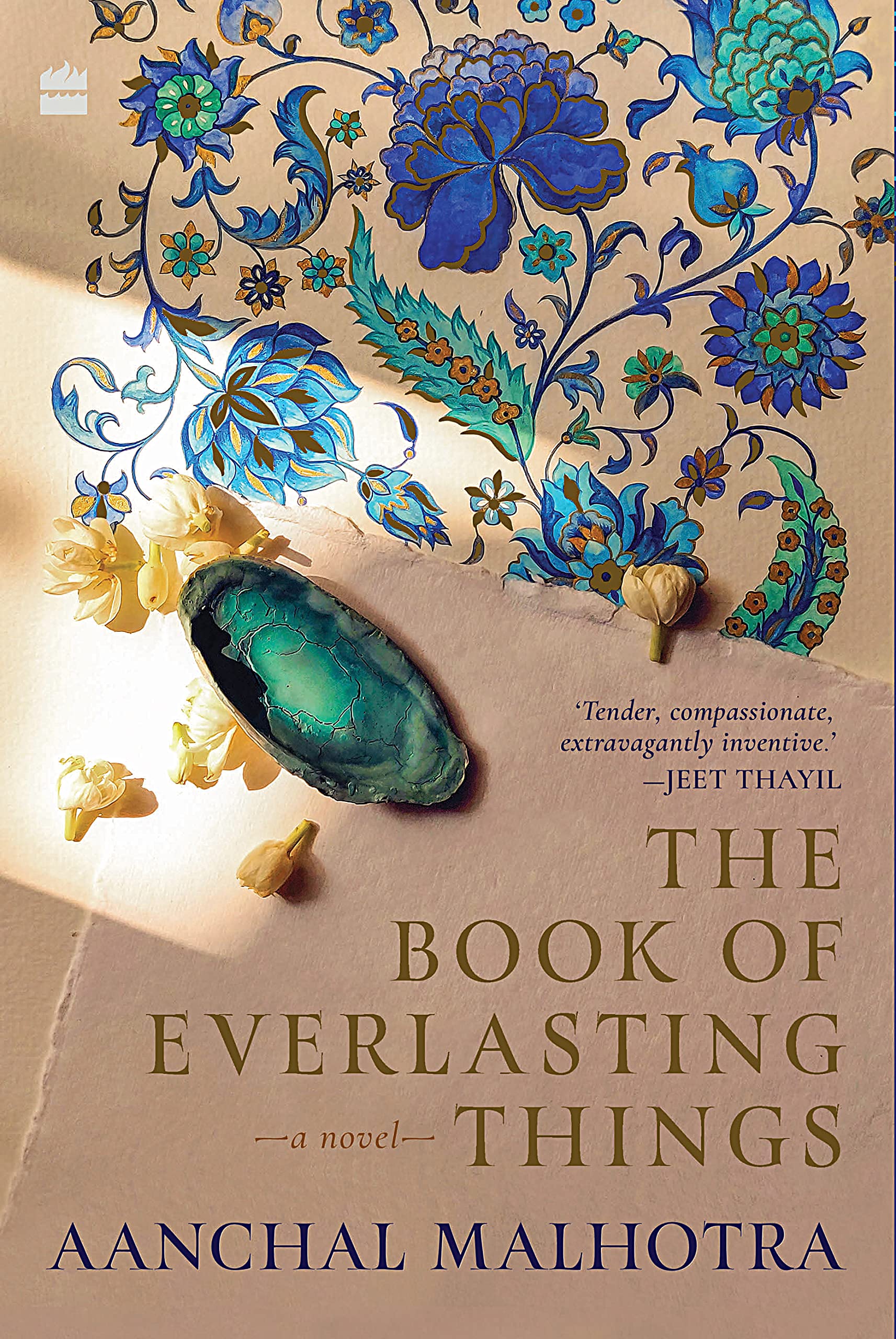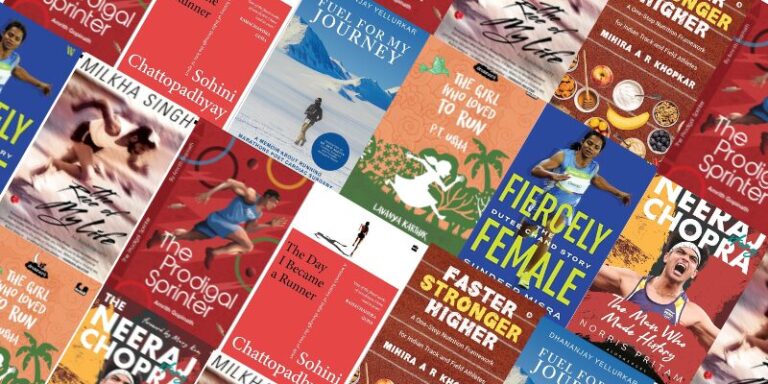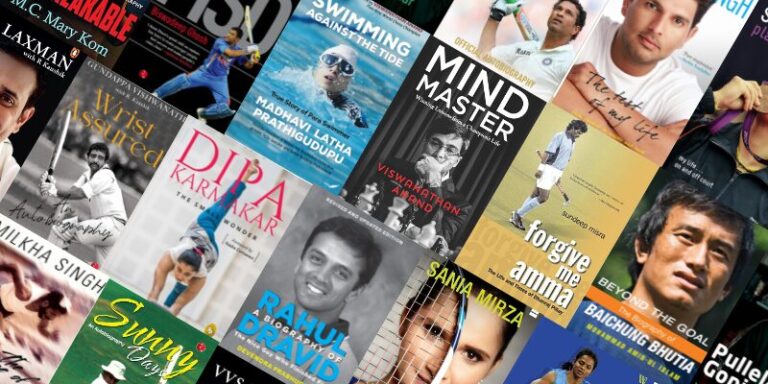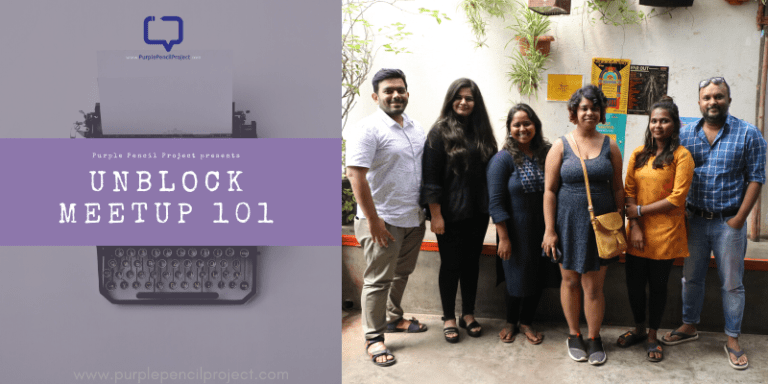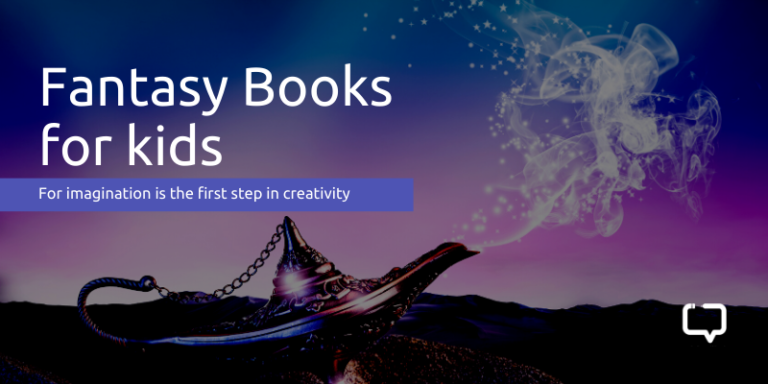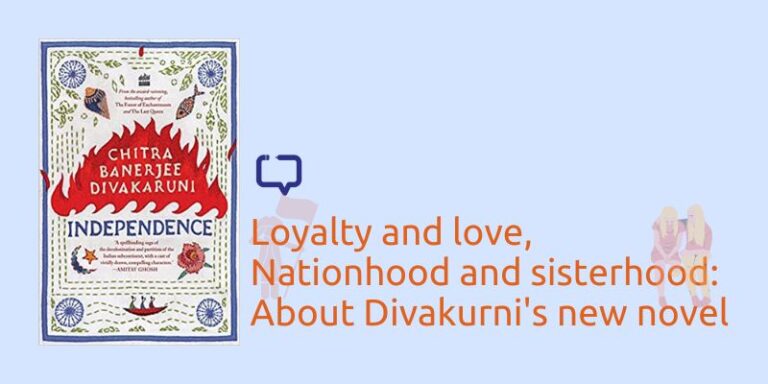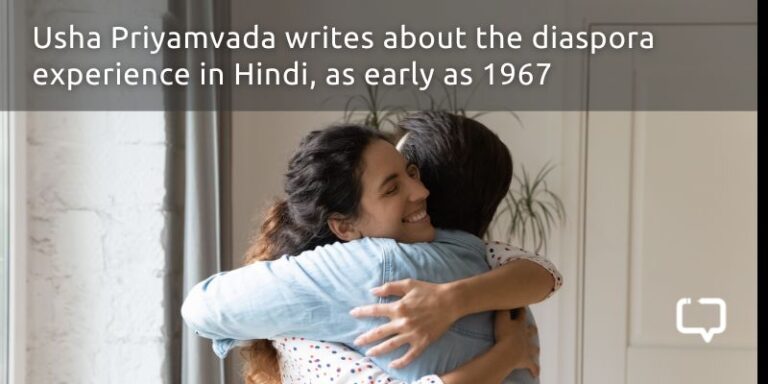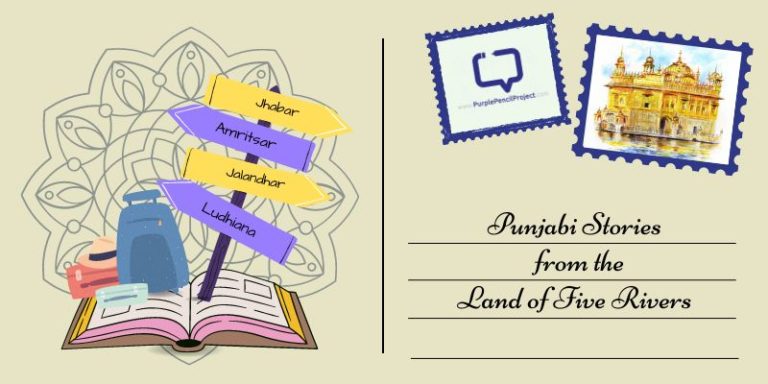A Partition Love Story, The Book of Everlasting Things by Aanchal Malhotra (Harper Collins, 2022) is a moving tale of love and belonging.
How do you belong, and what roots you in this life? Our purpose is often one of the greatest questions that we spend our whole life answering, or rather, trying to answer.
For Samir in The Book of Everlasting Things, it’s to use his inherited, exceptional nose to draw out smells from the earth and the sky and bottle them. Through this veil of smells, he first encounters Firdaus, a young calligrapher. Over the years, as they fall in love, ink & perfume mix and write their story. But after the 1947 Partition, the two lovers are separated by duty, fate, & family as Samir becomes Indian, and Firdaus stays back in Lahore. How will they decide which memories to hold onto, and which to let go of?
Aanchal Malhotra (Remnants of a Separation, Remnants of Partition) weaves a heady narrative that’s heavily laced with the language and remembering of the past in this partition love story. The partiality to viewing your surroundings through an olfactory lens is a meta-narrative, wanting to highlight the importance of smell in remembering. You would think that a language so tightly bound would be overbearing for the reader, but it’s more like the author is inviting the reader to loosen the knots, which I did without even thinking.
We encourage you to buy books from a local bookstore. If that is not possible, please use the links on the page and support us. Thank you.
“…smells of the first chai being brewed—tea leaves, cardamom, ginger, tulsi, milk, and sugar—…”
The narrative is underlined with the importance of smell, then the pain of parting & the brief politics of Partition, and is closed again with the importance of smell. That’s what the author does in the smaller subplots as well throughout this partition love story, especially with Samir going back to France to revisit his uncle Vivek’s—from whom he’d inherited the ‘nose’—birthplace as a perfumer. I especially like how the relationship between Samir and his uncle, his teacher, develops throughout his life. As a part of unpacking his reclusive uncle’s personal life, Samir gets the closure and the answers he wanted for his unresolved pain.
A narrative that stays with you
In this partition love story, what struck me is also the choice of translating sentences from Hindi to English. Every translated text and sentence should retain the essence of what’s being communicated, but it’s essentially a new piece of text. I like how Aanchal chooses to weave her translations as explanations instead of just translations. Take this instance, for example:
“Welcome to our city of perfumes, our sugandhit tapobhumi.”
“Sugandhit tapobhumi?”
….
“Sugandh, yes, you understand that word, fragrance. And tapobhumi is a place where one seeks enlightenment & illumination.”
Since the text is so intricately woven with a very real-life craft that has its own mechanics and processes, it is very important to get the details right, and still not overwhelm or make that process monotonous. What is more difficult in this is a dynamic craft, so delving into the perfumeries and how they functioned in 1930’s and 40s Lahore must have been painstakingly done. I think that Aanchal’s prowess as a storyteller informs the instruments and process she has everyone around Samir explain to him, and through that, to us.
In the end
The Book of Everlasting Things is a long, detailed, yet perfectly paced narrative about the purest form of emotion distilled by the characters in their own personal decanters. When I close the book, I wrap myself in its smell, hoping to let its words transport the thousands of smells they describe into my nose.
Best Quote
“Fragrance had the power to deliver one back in time.”
Have you read this timeless saga of love and belonging? What do you think of it? Drop a comment below and let us know!

As part of our effort to compensate our writers better, we at Purple Pencil Project have launched the #PayTheWriter initiative, where readers can directly show support and appreciation for our wonderful team.
Scan or upload this image on your UPI app, and show them the love 😀








